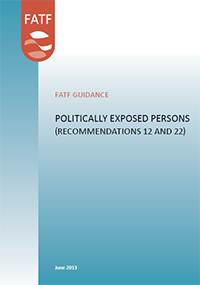Find out about the world, a region, or a country
FATF Member Countries
- Argentina
- Australia
- Austria
- Belgium
- Brazil
- Canada
- China
- Denmark
- Finland
- France
- Germany
- Greece
- Hong Kong, China
- Iceland
- India
- Indonesia
- Ireland
- Israel
- Italy
- Japan
- Korea
- Luxembourg
- Malaysia
- Mexico
- Netherlands
- New Zealand
- Norway
- Portugal
- Russian Federation *
- Saudi Arabia
- Singapore
- South Africa
- Spain
- Sweden
- Switzerland
- Türkiye
- United Kingdom
- United States
* membership suspended on 24 February 2023
FATF Global Network
- Asia/Pacific Group on Money Laundering (APG)
- Caribbean Financial Action Task Force (CFATF)
- Eurasian Group (EAG)
- Eastern and Southern Africa Anti-Money Laundering Group (ESAAMLG)
- Action Group against Money Laundering in Central Africa (GABAC)
- Financial Action Task Force of Latin America (GAFILAT)
- Inter Governmental Action Group against Money Laundering in West Africa (GIABA)
- Middle East and North Africa Financial Action Task Force (MENAFATF)
- Committee of Experts on the Evaluation of Anti-Money Laundering Measures (MONEYVAL)
High-Risk and Other Monitored Jurisdictions
Browse our publications, including reports, guidance and statements
Current or recent public consultations
Explore the FATF's areas of work:


 Twitter
Twitter
 Facebook
Facebook
 Instagram
Instagram
 Linkedin
Linkedin
